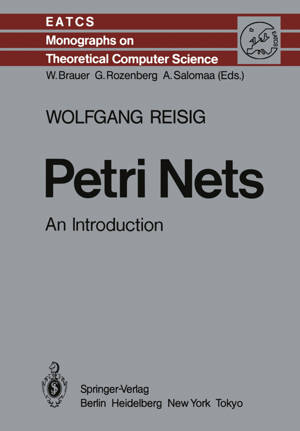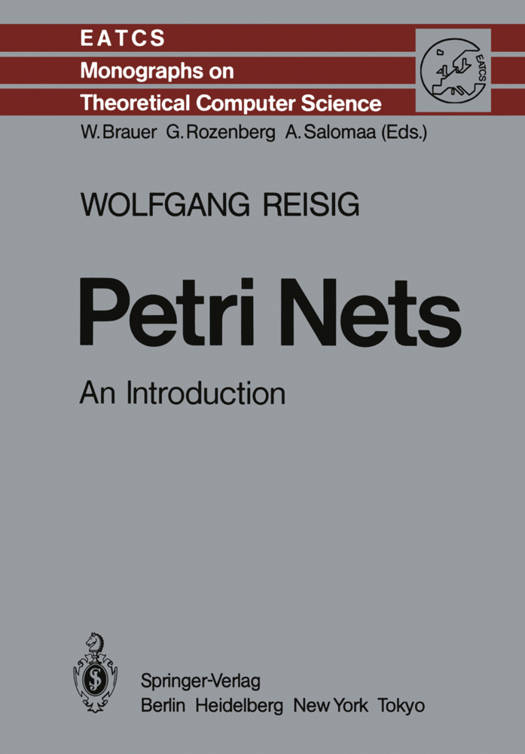
Bedankt voor het vertrouwen het afgelopen jaar! Om jou te bedanken bieden we GRATIS verzending (in België) aan op alles gedurende de hele maand januari.
- Afhalen na 1 uur in een winkel met voorraad
- In januari gratis thuislevering in België
- Ruim aanbod met 7 miljoen producten
Bedankt voor het vertrouwen het afgelopen jaar! Om jou te bedanken bieden we GRATIS verzending (in België) aan op alles gedurende de hele maand januari.
- Afhalen na 1 uur in een winkel met voorraad
- In januari gratis thuislevering in België
- Ruim aanbod met 7 miljoen producten
Zoeken
Omschrijving
Net theory is a theory of systems organization which had its origins, about 20 years ago, in the dissertation of C. A. Petri [1]. Since this seminal paper, nets have been applied in various areas, at the same time being modified and theoretically investigated. In recent time, computer scientists are taking a broader interest in net theory. The main concern of this book is the presentation of those parts of net theory which can serve as a basis for practical application. It introduces the basic net theoretical concepts and ways of thinking, motivates them by means of examples and derives relations between them. Some extended examples il- lustrate the method of application of nets. A major emphasis is devoted to those aspect which distinguish nets from other system models. These are for instance, the role of concurrency, an awareness of the finiteness of resources, and the pos- sibility of using the same representation technique of different levels of ab- straction. On completing this book the reader should have achieved a system- atic grounding in the subject allowing him access to the net literature [25]. These objectives determined the subjects treated here. The presentation of the material here is rather more axiomatic than in- ductive. We start with the basic notions of 'condition' and 'event' and the con- cept of the change of states by (concurrently) occurring events. By generali- zation of these notions a part of the theory of nets is presented.
Specificaties
Betrokkenen
- Auteur(s):
- Uitgeverij:
Inhoud
- Aantal bladzijden:
- 164
- Taal:
- Engels
- Reeks:
- Reeksnummer:
- nr. 4
Eigenschappen
- Productcode (EAN):
- 9783642699702
- Verschijningsdatum:
- 17/11/2011
- Uitvoering:
- Paperback
- Formaat:
- Trade paperback (VS)
- Afmetingen:
- 170 mm x 244 mm
- Gewicht:
- 294 g

Alleen bij Standaard Boekhandel
+ 237 punten op je klantenkaart van Standaard Boekhandel
Beoordelingen
We publiceren alleen reviews die voldoen aan de voorwaarden voor reviews. Bekijk onze voorwaarden voor reviews.









